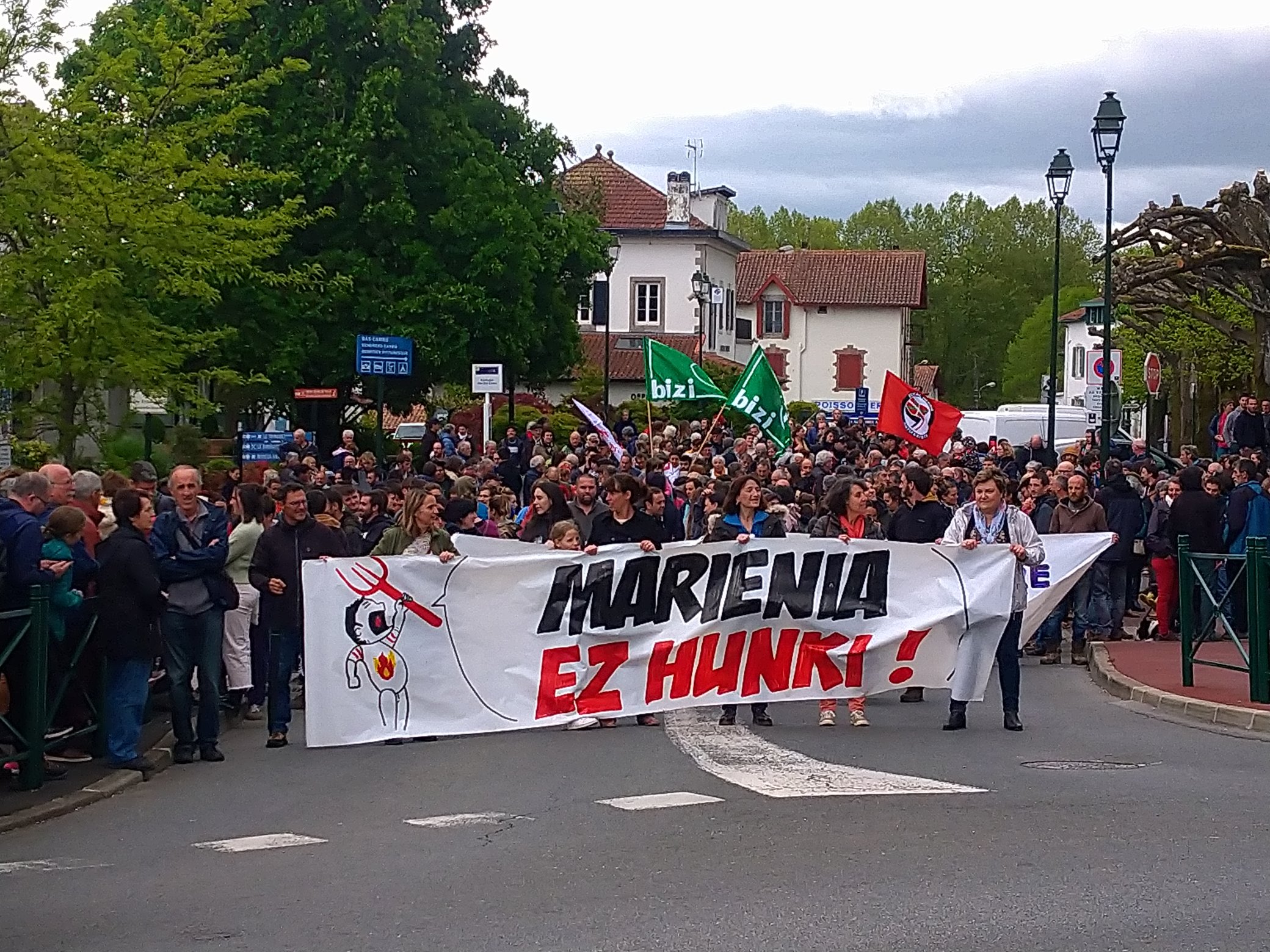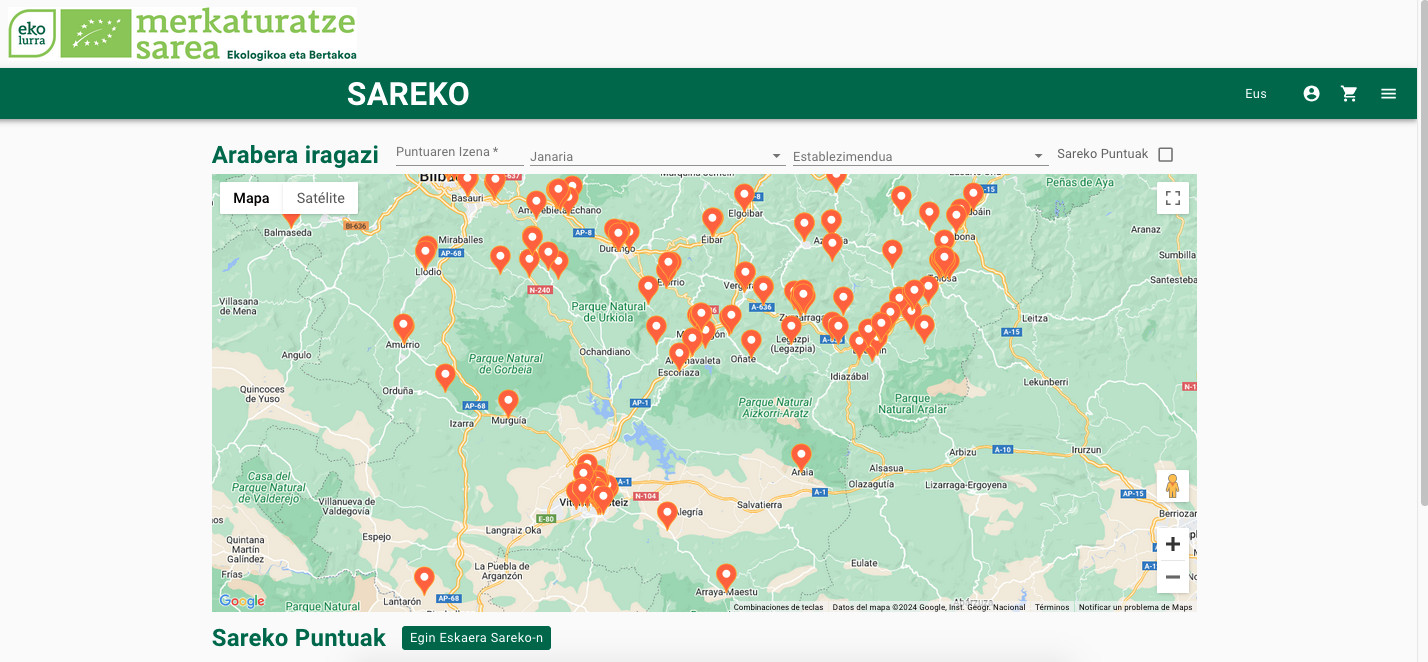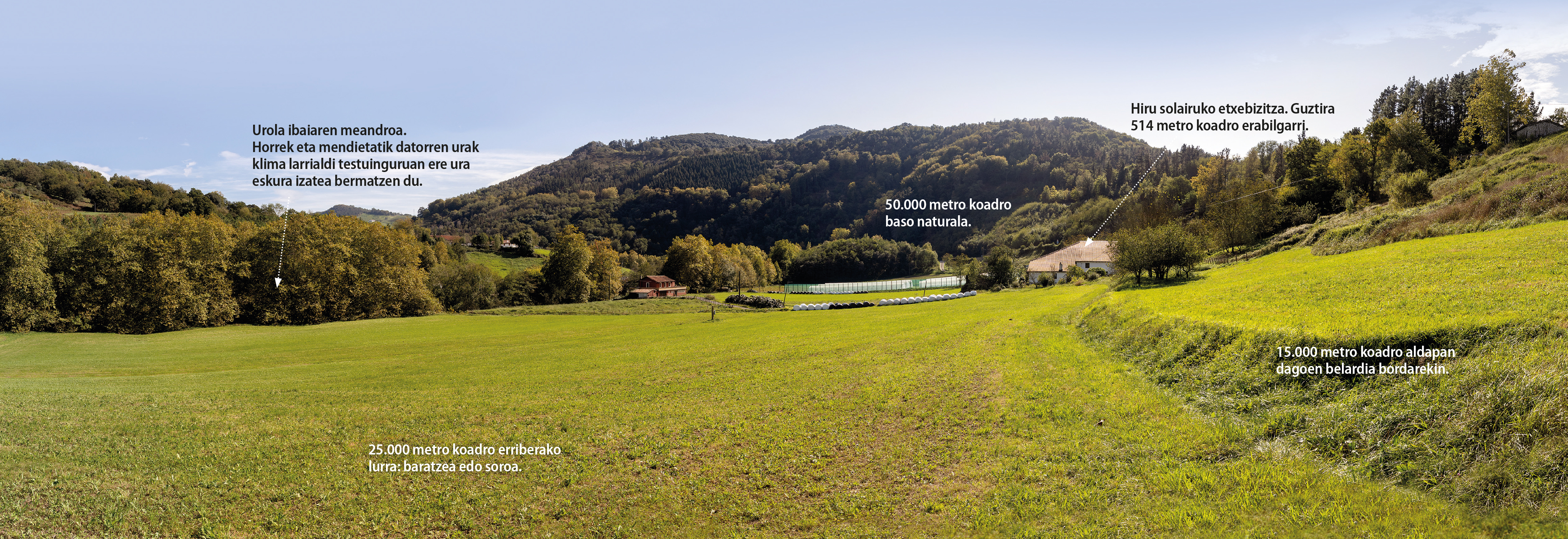Olivier Doihenard, farmer of Arbona: "Urbanism is the main problem for farmers on the coast"
- Olivier Doihenard, 41, works in Arbona (Lapurdi). It says that the first problem with coastal agriculture is urbanism.

What kind of house do you have?
At the farm in Agerea we work 32 hectares. We are two comrades, myself and Olivier Gervais, who installed me two years ago. We produce cow's milk, we sell it in raw milk, we turn it into cheese and yurre. We sell half of the production, to the CLPB worker so far and beyond, to the Biolait group, which has moved on to the biological. We produce 100,000 liters a year.
Do you have the property of the land you use?
We own 14 hectares, which we rent 7 ha with contracts, and the rest (11 hectares) are annual rentals, so we lose year after year. In Arbona there are a dozen small farms, mostly dedicated to the raising of cows: four milk producers, there are beef cows... They live mostly from agriculture.
Are the main complaints of your farms in your vein?
For us urbanism is our main problem. Arbona is a tired land, construction has been made in a ridiculous way in half a century. Constructions always remain in ancient times. The pressure is high, the risk of losing the land, the risk of being placated by the new land. As for prices, imobilisation pressure is animal, the question is great.
Does it also have an impact on the way we work?
Yes. The spread of urine is not rex, you have to let the cows walk along some paths with the cows because if the cows move a little to the right and bite the lawns of the houses, it happens very badly. It's not ridiculous to work here. We have the partridges that we rented 30 years ago, we've sawn them, we raise them and we entertain them, and we're always afraid to lose them. This fear is very agitating. We would like to improve the ways of working, we would like to cut, but we always have the possibility to go back.
Does the proximity of big cities also have benefits for those who work in short circuit?
Yes, that's important. In the production of cow's milk, that helps us a lot. Local consumers are attached to local agriculture. Socially interesting and economically as well. But we must not forget that it is another work, transformation and marketing.
If it's work, over culture. For example, from Monday to Saturday we carry out the distribution of raw milk throughout the day in pastry shops or supermarkets. So in our hacienda there are two turns, it's good to have two tías for that kind of life.
Be optimistic about the future?
When the house has to be passed on, the crop is produced in a great yearning. If you never do well among the siblings, the transition from the farm is impossible. If one wants to concentrate on agriculture and the other wants part of the heritage, there are major problems. I'm worried about the value of kindness. The price of land rises, the price of houses also makes it fiscal.
However, the peasants demonstrate the attachment they have to their farms and hope is not lost... but it cannot. When you change your generation, the ways of seeing also change, and there's irritation in every generational relay.
Are there ways to deal with this situation?
The houses of the people bear a great responsibility for this problem. When drawing up urban plans, it is they who decide whether or not they help the imobiliarian. In the case of Arbona, the urban plan is being reviewed and the lies are being squeezed to build more houses, while at the same time saying that they want to support the cultivation. To 20 or 25 hectares of farmland you want to take advantage of to build houses, make soccer fields... It's the measure of a beautiful farm. The removal of these lands will be done to crops and within the same period 50 housing units will be built for the second house. It is not normal for our land to be wasted in this way.
So is it possible to hold some skirmishes to alleviate the situation?
Yes. The urban plan is determined in the Colegio Vasco. Fighting, denouncing, I believe that these logical forms must be stopped. The ELB and Lurzaindia are struggling with that sense and all that does a job at the head of the electorate. We must continue to put pressure on farmers, including consumers and environmental carers. Urbanism is the main problem for the farmers of the coast and is decided at the level of Colegio Vasco. It is very important to work there, also for other things, but above all in our urbanism.





















